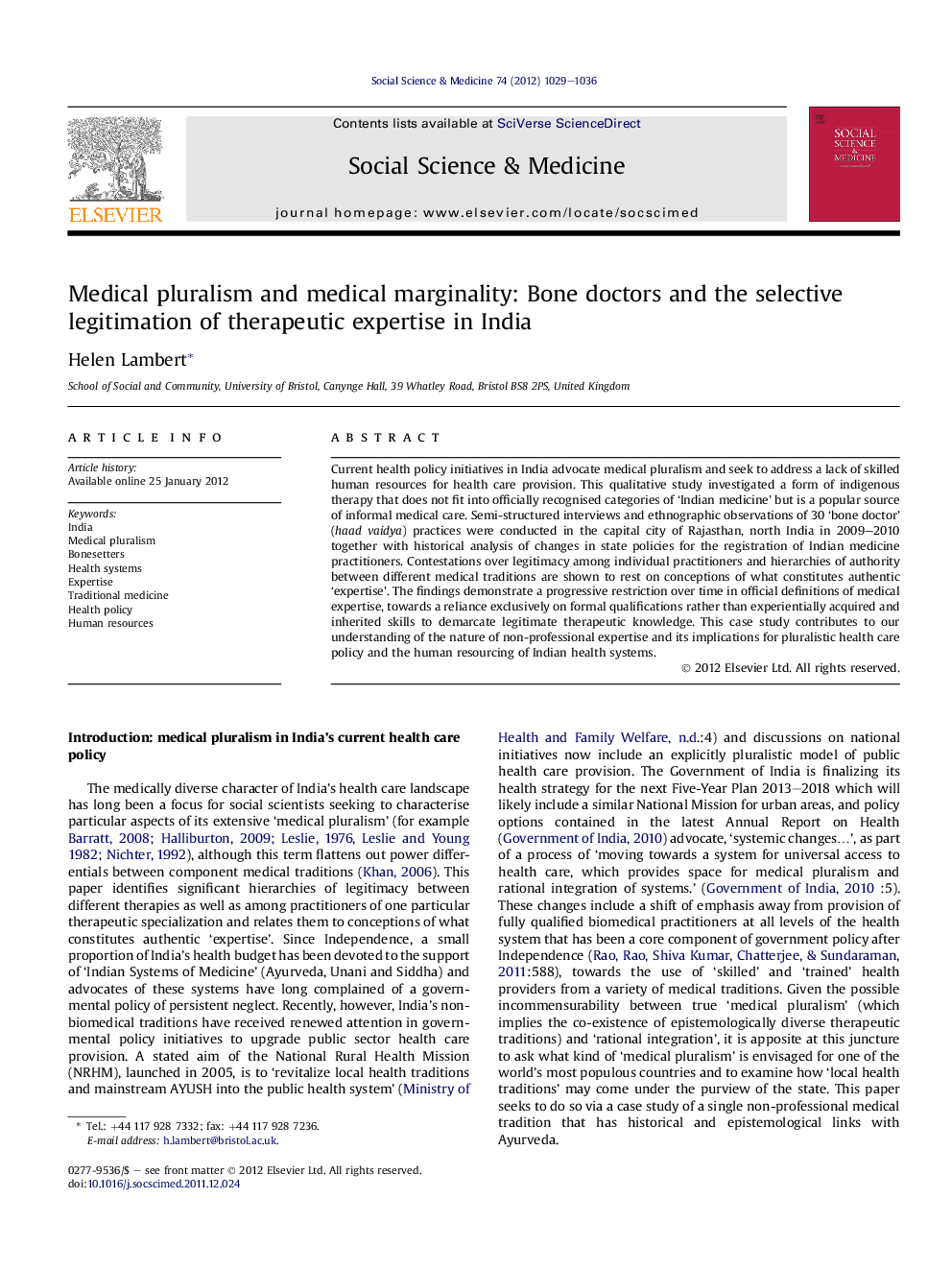| Article ID | Journal | Published Year | Pages | File Type |
|---|---|---|---|---|
| 952714 | Social Science & Medicine | 2012 | 8 Pages |
Current health policy initiatives in India advocate medical pluralism and seek to address a lack of skilled human resources for health care provision. This qualitative study investigated a form of indigenous therapy that does not fit into officially recognised categories of ‘Indian medicine’ but is a popular source of informal medical care. Semi-structured interviews and ethnographic observations of 30 ‘bone doctor’ (haad vaidya) practices were conducted in the capital city of Rajasthan, north India in 2009–2010 together with historical analysis of changes in state policies for the registration of Indian medicine practitioners. Contestations over legitimacy among individual practitioners and hierarchies of authority between different medical traditions are shown to rest on conceptions of what constitutes authentic ‘expertise’. The findings demonstrate a progressive restriction over time in official definitions of medical expertise, towards a reliance exclusively on formal qualifications rather than experientially acquired and inherited skills to demarcate legitimate therapeutic knowledge. This case study contributes to our understanding of the nature of non-professional expertise and its implications for pluralistic health care policy and the human resourcing of Indian health systems.
► Describes a previously unstudied Indian specialist form of treatment for musculo-skeletal problems. ► Analyses a variety of therapeutic expertise based in experiential rather than formal learning. ► Documents a historical process of marginalisation of this non-professional therapeutic tradition. ► Discusses implications for current health policies promoting medical pluralism and government initiatives for enhancing provision of health care in India.
